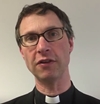 "Every effective renewal movement has started with the poor"
"Every effective renewal movement has started with the poor"
 In March 2016, the Bishop of Burnley, the Rt Revd Philip North spoke on urban estates at an evangelism conference.
In March 2016, the Bishop of Burnley, the Rt Revd Philip North spoke on urban estates at an evangelism conference.
Here are some very thought provoking excerpts from his talk:
"Our task as the Church is the transformation of a nation in the name of Christ. And if we are serious about that transformation, we have to put the estates right at the heart of any strategy. Why?
"Firstly, every effective renewal movement in the history of the Church has started with the poor. When people see a Church that practises what it preaches, that listens to the cry of the poor, that challenges the values of the world they sit up and listen.
"Secondly, a Church that abandons the poor has abandoned God. If we quit the poorest estates in the country, we renounce all authority to proclaim the Gospel anywhere. We become a church of shabby hypocrites, lazy, complacent and self indulgent.
"A Church that is serious about renewal puts the poor first, not last.
"We want to renew the estates because that is the only way to renew the whole Church, because a Church can never grow if it is deaf to the cries of the poor. To quote Jim Wallis, 'If our Gospel is not Good News for the poor, it is not the Gospel of Jesus Christ'.
"What is the Good News in that [estate] setting? What is the content of our proclamation? I am not suggesting here that the Gospel changes from place to place. But Jesus started every encounter not with proclamation but with questions. He then spoke Good News into the context into which he was speaking, meeting the needs of the person he was addressing. If we want to be taken seriously on the estates, we need to hear, understand and the answer the questions that people are asking. Pre-packaged Gospel messages lifted from other contexts won’t do. If you are living in a damp house, dependent on payday loans or food banks, trying to make ends meet on a zero hours contract, or worrying about the behaviour of your children, what is the Good News? Unless we can answer that, our evangelism is bound to fail because no one will listen.
"All too often we fail to connect social ministry with evangelism, indeed they are at times seen as polar opposites. We have created an absurd, false and heretical dichotomy between those who talk about the Kingdom and those who talk about growth. That will not do. To proclaim but not to serve is hypocrisy, we know that. But to serve without proclaiming is to deny the poor the greatest of all, the gift of Jesus Christ.
"I am a big fan of the church planting movement, but it is odd that God seems to be calling large numbers of pioneers to work in Zones 1 and 2 in London but hasn’t yet called anyone to Brambles Farm or Grange Park or countless other estates. Or maybe it’s not God. Maybe he’s calling, but we’re failing to respond. What steps do we need to take in order to support, sustain and encourage clergy who take the plunge to work on an estate? How can we make it clear that those who are faithful enough to commit a part of their ministry to this context are not blamed for the perceived failings of their churches, but are seen as heroes?
"We have unquestioningly swallowed suburban methods of measuring success in church life based purely on the criteria of money and numbers which leaves estates churches looking like they have failed. It means that many of our evangelistic resources which are so effective in other situations -– Alpha, discipleship courses, home groups and so on – just don’t work in the context of the estates where educational expectations are different, homes are small, family life is often unstable and ways of managing time are so much more spontaneous. It means that we retain an addiction to service provider models of community engagement based on the rich doing something for the poor and have been slow to foster local leadership, create space for community based solutions and help to challenge the culture of dependency that so afflicts many of our estates.
"The solutions to this problem must of necessity be radical. We need new and culturally appropriate models of church life which could look utterly unlike a traditional Parish. We need to take huge risks with local leadership, some of which may spectacularly backfire. We need to hear a great deal more about which evangelistic resources are working on the estates and then pour some imagination into thinking up new ones. We need to reflect on what ‘success’ looks like in estates ministry and whether it is in any sense a helpful word to use.
"To argue that poorer parishes are subsidised by richer ones is to replace the Gospel with consumer economics. In fact it is the poor who subsidise the rich, for it is the poor who recall the Church to its purpose and to the vocation of Christ himself who came to preach good news to the poor. Our primary task today is remind the wider Church of this truth and encourage them to act on it. If we abandon the poor, we abandon God."
I'm finding it difficult to respond immediately as these deep truths sink in. Perhaps these thoughts will lead you to review how your church is reaching the poor?
Retweet about this article:
Geoff Knott, 21/04/2016